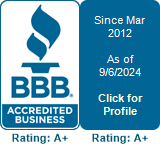When approached by the IRS for an audit or collections many people believe that by cooperating with the IRS then it shows their good faith and the IRS will leave them alone.
That is actually true - up to a point. You must show your credibility & honesty through the presentation of your evidence. But, you are not required to answer all of the IRS questions. The IRS employees will ask you for a lot of information & documents. They will continue this "fishing expedition" unless you reverse the process.
IRS Audits:
IRS agents who conduct audits are trained to keep digging into your affairs to find fault. They take one-sided notes of conversations so they can be witnesses against the taxpayer in any hearing. It is nearly impossible to rebut IRS agent testimony. If they state that their notes indicate some fact, how can you dispute it with your testimony alone?
IRS Collections:
For collections, Revenue Officers are constrained in what they can allow as deductions and they are trained to look for all sources for collection. They are looking to collect the most from you that they can. So, by fully cooperating, everything you reveal to a Revenue Officer or Agent can and will be used against you!
The disclosure forms the IRS will request from you will require you to make many admissions against your interest & they are designed to restrain you from advocating for your case.
Therefore, in either circumstance, it is better to have an attorney represent the taxpayer with the IRS. They can be a barrier against improper IRS inquiry and to advance the taxpayer's interests. The weight of the government must be removed from your shoulders & turned into an anchor to secure your claims for your benefit against the IRS.
J David Hopkins, JD, LLM - TaxHelpLaw.com






